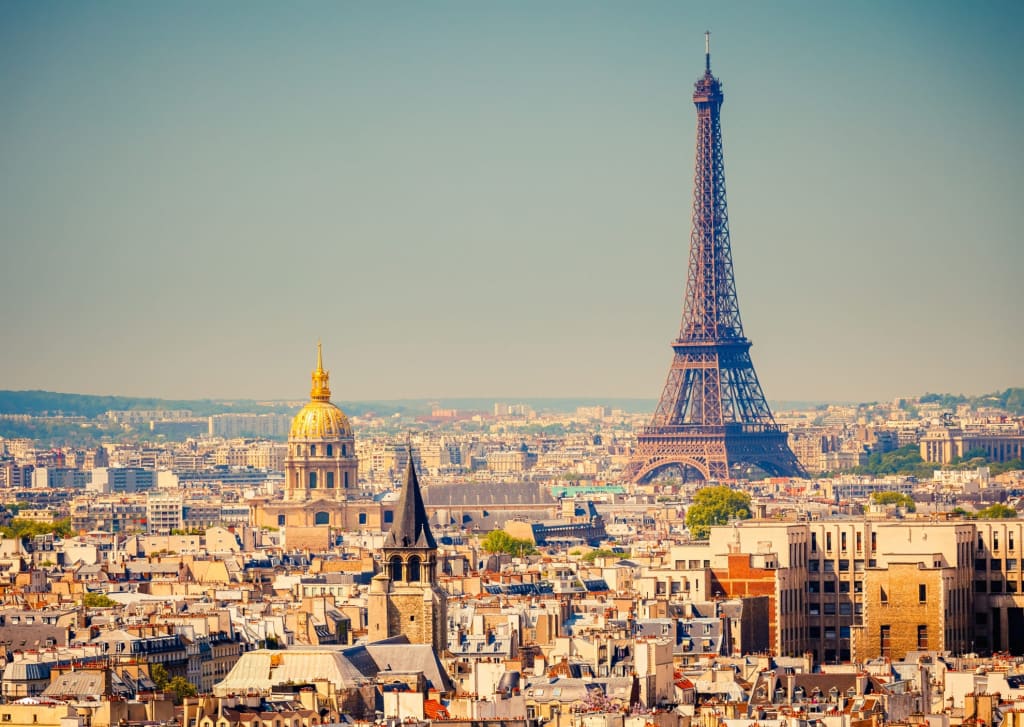
The history of France is rich and complex, spanning thousands of years. Here is a brief overview of key periods and events in French history:
Ancient Gaul: The region that is now France was inhabited by Celtic tribes before the Roman Empire's conquest in the 1st century BC. The Gauls, as they were known, were gradually assimilated into the Roman culture.
The Frankish Kingdom: In the 5th century AD, the Franks, a Germanic tribe, established their dominance over Gaul. Clovis I, the first king of the Merovingian dynasty, converted to Christianity in the 6th century and laid the foundation for a unified Frankish kingdom.
Charlemagne and the Carolingian Empire: Charlemagne, a Frankish king, expanded the Frankish realm in the late 8th and early 9th centuries, establishing the Carolingian Empire, which encompassed much of Western Europe. Charlemagne's reign is seen as a pivotal moment in European history.
Feudalism and the Capetian Dynasty: After the Carolingian Empire's decline, feudalism emerged as the dominant social and political system in France. The Capetian Dynasty, founded by Hugh Capet in 987, provided stability and gradually extended its control over the French territories.
The Hundred Years' War: This conflict, which lasted from 1337 to 1453, was fought between the Kingdom of England and the Kingdom of France. The war resulted in significant territorial losses for France but also helped foster a sense of national identity and pride.
The Renaissance and the French Monarchy: The 16th century witnessed the Renaissance in France, marked by cultural and intellectual flourishing. The monarchy, particularly under Louis XIV (1643-1715), centralized power and established France as a leading European power.
The French Revolution: In 1789, the French Revolution erupted, leading to the overthrow of the monarchy, the Reign of Terror, and the rise of Napoleon Bonaparte. The revolution profoundly transformed France's political and social landscape, promoting ideals of liberty, equality, and fraternity.
The Napoleonic Era: Napoleon Bonaparte seized power in 1799 and established the First French Empire. He embarked on a series of military campaigns across Europe, eventually facing defeat and exile in 1814. Napoleon's impact on France and Europe remains significant.
The Third Republic and World Wars: The Third French Republic was established in 1870 following the fall of Napoleon III's Second Empire. France experienced two devastating World Wars in the 20th century, with significant losses and a changing role in global affairs.
Post-World War II and European Union: France played a crucial role in the formation of the European Union after World War II. The country underwent decolonization, granting independence to many of its overseas territories, and embarked on economic and political integration in Europe.
This overview provides a general understanding of French history, but there are numerous other events, figures, and details that contribute to the complexity and depth of France's historical narrative.
Post-World War II Reconstruction: After the devastation of World War II, France focused on rebuilding and recovering from the damage caused by the conflict. The country underwent significant economic and infrastructural reconstruction, aided by the Marshall Plan.
Decolonization and Independence Movements: France's colonial empire, which once spanned various regions in Africa, Asia, the Caribbean, and the Pacific, began to dissolve in the mid-20th century. Algeria, in particular, fought a long and bitter war for independence from France, gaining its sovereignty in 1962. Other French territories also achieved independence during this period.
The Fifth Republic and De Gaulle: The Fifth French Republic was established in 1958 with Charles de Gaulle as its first president. De Gaulle played a crucial role in shaping modern France, overseeing constitutional reforms, promoting national independence, and pursuing nuclear weapons development.
May 1968 Protests: In May 1968, France witnessed a series of protests and strikes that brought the country to a standstill. Students, workers, and intellectuals protested against social inequality, political conservatism, and perceived cultural constraints. The events of May 1968 had a profound impact on French society, sparking cultural and political changes.
European Integration and the Eurozone: France has been a key proponent of European integration. The signing of the Treaty of Maastricht in 1992 led to the creation of the European Union (EU), and France has actively participated in EU initiatives, including the adoption of the euro as its currency in 1999.
Recent Political and Social Developments: France has seen various political and social developments in recent years. It has witnessed changes in government leadership, economic challenges, debates on immigration and multiculturalism, and social movements addressing issues such as climate change and social justice.
It's important to note that this overview provides a general outline of French history, and many specific events, movements, and individuals have shaped the country's trajectory in unique ways. French history is a vast subject, and exploring it in detail reveals the intricacies and nuances of its historical narrative.






Comments
There are no comments for this story
Be the first to respond and start the conversation.